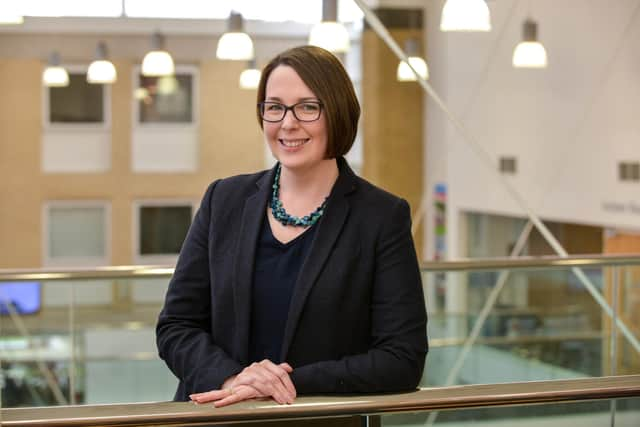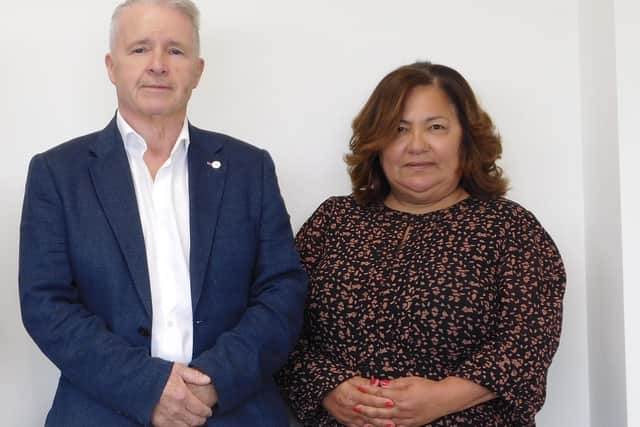Blackpool firm benefits from University’s low carbon initiative
and live on Freeview channel 276
The Low Carbon Eco-Innovatory (LCEI) from Lancaster University is a business support programme, which gives small companies free access to world-leading academic expertise and cutting-edge resources through funded research and development projects, ranging from one month to 12 months.
Among the 22 SMEs it has helped is Blackpool-based Autentica Parts, a platform which allows engineers to share designs for parts and components which can be 3D printed by customers anywhere in the world.
Advertisement
Hide AdAdvertisement
Hide AdIt is the brainchild of Irma Gilbert whose research and development was accelerated using a fully-funded internship.


Together they helped create a prototype for the platform which now boasts customers in Europe, the Middle East, Asia and South America in a variety of sectors including automotive, electronics, consumer goods, medical services, heavy machinery and energy.
The platform is decarbonising the manufacturing supply chain, cutting transportation and logistics costs by 70 per cent, delivery times from three months to 24 hours, and CO2 emissions by up to 40 per cent.
She now has a team of four and is forecasting a turnover of £6m by 2025.


Advertisement
Hide AdAdvertisement
Hide AdShe said: “I saw a transformational opportunity to create a marketplace where engineers could share their designs for parts and components, which could then be uploaded to a platform, licensed and downloaded by customers anywhere in the world for additive manufacture.
“We really are indebted to the support offered by LCEI and the expertise of Lancaster University which supercharged my ideas to create a platform transforming supply chains, reducing carbon emissions and building a sustainable future.”
LCEi is delivered by Lancaster University’s Centre for Global Eco-Innovation which is led by Jess Davies, Professor in Sustainability.
She said: “One of the main challenges for women starting out in engineering is seeing it as a profession for them – having great female role models is incredibly important.
Advertisement
Hide AdAdvertisement
Hide Ad“As a programme, we want to champion SMEs to play a leading role in addressing climate and environmental emergencies. But it is also important that we champion the diversity of these innovators to help overcome barriers and change the traditional culture and norms.
"We can help drive change by diversifying networks. We need diverse perspectives and lived experiences to form a better understanding of the many dimensions of the problem and we are going to need all the creativity that comes with diversity to help us find good solutions to the major environmental problems of our times.”
LCEI is a business R&D consortium, backed by the European Regional Development Fund (ERDF), and led by Liverpool John Moores University (LJMU) alongside partners Lancaster University and the University of Liverpool.
For more information visit www.lancaster.ac.uk/global-eco-innovation/business/lcei/ or contact Philippa Chapman via email [email protected]
